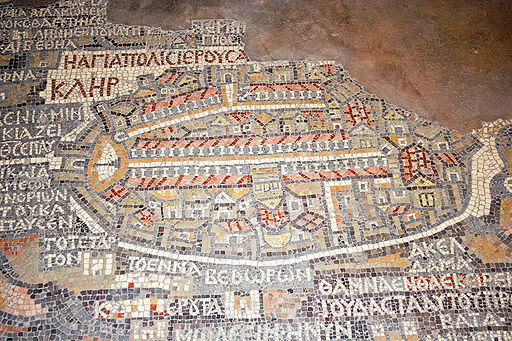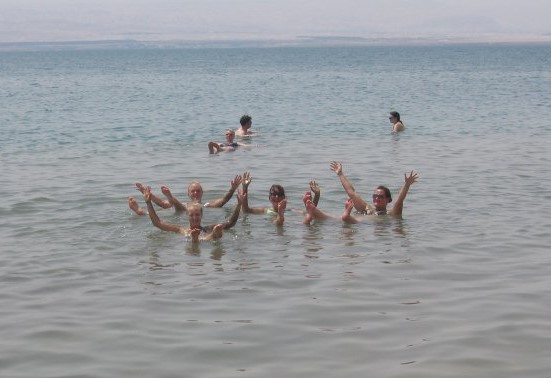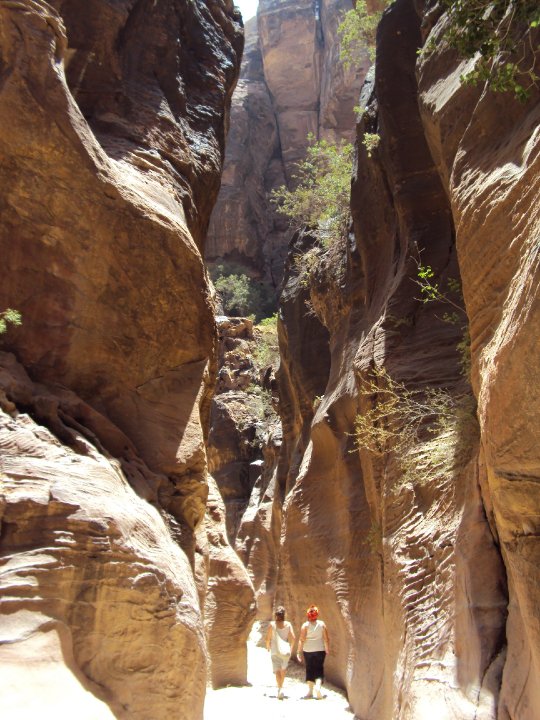Practical information
Below is information on earlier and upcoming season dates, the town of Madaba and a description of the work done at the field school. There is also general information on the daily schedule, safety and weekends.
Season dates
The field school season usually lasts approximately four weeks in early or late summer. The dates of the earlier field seasons can be seen below. As soon as the dates for the upcoming seasons are decided, they will be announced here.
- 2014: 29th of May to
23rd of June - 2015: 16th of August to 13th of September
- 2016: 17th of May to 14th of June
- 2017: 6th of May to 1st of June
- 2018: 21st of April to 16th of May
- 2019: 1st of June to 29th of June
Madaba
The field school is based in Madaba, which is a town located in northern Jordan. Madaba has situated approximately 30 km from the capital, Amman. The tourist website of Madaba describes the town as “…a pleasant, relaxed, tolerant and easy-going little town well known for its Byzantine mosaic”, who are “…proud of the tolerance between both Christians and Muslims in the city.” ( http://www.visitmadaba.org/).
Madaba is visited by many tourists and the downtown area has many restaurants and cafés. The people of Madaba are welcoming and used to many different nationalities visiting the town. Furthermore, the residents of Madaba are accustomed to international archaeological projects visiting for an extended period, due to the long and important archaeological sequence of the town and its hinterland.

There are many things to see in Madaba, such as the famous Madaba Mosaic Map located inside the Greek Orthodox Basilica of Saint George. The mosaic map depicts cities, rivers, hills
More information on Madaba can be found at the official tourist website: http://www.visitmadaba.org/

The Work
The work at Murayghat field school is intended to provide participants with knowledge of and practical training in archaeological methods. The excavation and survey work are the main areas of work for field school participants, but it may also be possible to participate in other types of work. Some work will take place at the site and is more physically demanding (excavation and survey), while other aspects of the work are done mainly at the excavation camp (ceramics, lithics, registration, illustration
Excavation
The excavation is supervised by an experienced archaeologist, who organizes the work in the different excavation areas. Excavation will take place in several excavation trenches on the central hill. The student supervisors have previous experience with excavation and in turn organize the daily excavation work in one of the excavation trenches, leading a team of approximately three to four students.
Survey
The survey is supervised by an experienced archaeologist, who organizes the survey teams led by student supervisors. There will typically be several survey teams working either on the central hill or in the surrounding landscape. The student supervisors have previous experience with surveys and in
Various outside projects
Garmins, Total Station, Elevations
Ceramics
Lithics
Registration
The registration of finds is supervised by an experienced archaeologist. The registrar is responsible for the registration of incoming finds, for organizing the initial finds processing (such as washing and packing finds) and for distributing finds to the people working with analysis. The registrar also works with the illustrator and the photographer to organize the documentation of the finds. The registrar may need assistance during the registration work and all participants at the field school project can be asked to help out. Cleaning of finds is an essential part of finds processing and is a task that participants at the field school help with each afternoon.
Illustration and photography
The work with illustration and photography is supervised by an experienced archaeologist, who organizes the work on documenting the finds coming in from the site. Participants at the field school help with the documentation and practical work related to the finds documentation. If you have
Other practical information
Daily Schedule
The daily work of the field school demands an early morning start to avoid working in the high temperatures that the noontime summer days of Jordan offer. Later in the day, the work will be reserved
Weekends
Due to the short duration of the excavation season, weekends are only one and a half-day long. According to local customs the weekend is held from Thursday afternoon to Friday evening. Unfortunately, the field school is not able to provide accommodations during weekends but encourages students and other participants of the field school to go explore the many sights Jordan has to offer on their own. Each weekend during the field school student supervisors will arrange trips to a tourist site and it is up to participants at the field school if they are interested in travelling with the group or going to explore on their own. In previous years, the field school weekend trips have gone to beautiful locations, such as Mount Nebo, the rose-red city of Petra (and the so-called Neolithic trail in the vicinity) and Umm ar-Rasas. One weekend is dedicated to exploring the capital city of Jordan, Amman, which is a vibrant modern city with a rich cultural life and also has many archaeological remains to offer to interested tourists.
Environment
Educational environment: In addition to being a scientific project, the Murayghat project is also an educational course in the form of a field school. There is a strong focus on the educational environment within the project as the majority of the student participants have little to no archaeological experience. It is therefore important for the project to create a comfortable learning environment where it is not only acceptable but also encouraged for the students to ask questions, seek knowledge, and thrive with their assigned work duties. This is achieved by guidance from the main staff in addition to a corpus of student supervisors present to guide and help the students with the archaeological fieldwork, afternoon work as well as the planning of weekends and other practical aspects during the stay.
Tools/Attire
The participants must provide their trowel and pickaxe in addition to work clothes. Work clothes are ideally made of light fabric (such as cotton) and must be a loose fit and cover as much of the body as possible due to cultural reasons and to avoid sun exposure. Further detailed suggestions for the tools and attire will be offered
Student safety
There is always a potential risk of unsafe situations in all archaeological projects due to the very nature of excavations. Excavations involve demanding and stressful physical work, the use of heavy tools and rough terrains that all contribute to the risk factor. Additionally, the climate in the Middle East can be harsh during the summer periods, which further increases the risk factors (see “things to consider before applying”). The Murayghat field school has several rules and guidelines that provide a safe and comfortable living and working environment for all, especially people with little to no field experience. Moreover, the project is managed by archaeologists with decades of field experience that are trained in how to direct the project safely and suitably as well as possessing a profound knowledge of the local culture and community.
The developments of recent years in the Middle East have made travel in some parts of this region troublesome or impossible. Generally, Jordan is a peaceful country and the town of Madaba is a pleasant place used by many tourists visiting the sights of the city, but please make sure to consult with the foreign travel advice of your government to see the specific advice of your country on travelling in Jordan. The participants at the field school will need to obtain their health insurance.

